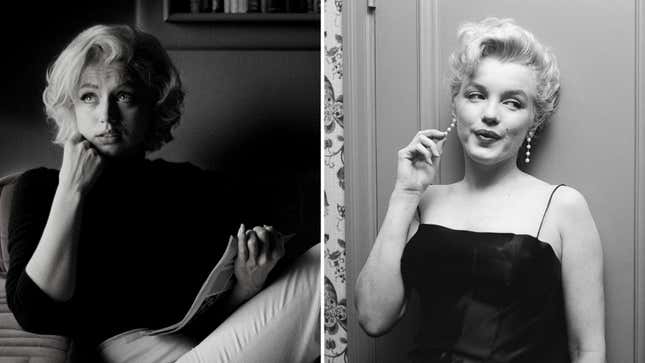With NC-17 Rating on ‘Blonde,’ Marilyn Is Being Over-Sexualized Once Again
Both Ana de Armas and director Andrew Dominik have expressed surprise and confusion about the rare rating, issued over "some sexual content."
In Depth

In the years since her untimely death in 1962, the much-photographed life of Marilyn Monroe has come into sharper focus. Behind the pin-up curls and doe-y bedroom eyes existed a real, breathing woman named Norma Jeane Baker. Such is the subject of Blonde, the movie based off of Joyce Carol Oates’ 2000 fictionalized biography of Monroe, both of which string together imagined and real events in Monroe’s life in an attempt to uncover her immense physical and psychological suffering. These days, we understand a woman can be both a babe and clinically depressed.
Yet, Blonde, a movie that wants to dismantle the over-sexualized perception of its starlet, looks like it’s being over-sexualized, itself. News broke in March that the film was given a rare NC-17 rating by the Motion Picture Association of America—the first NC-17 rating awarded to a Netflix original. Ironically, that explicit rating, deserved or not, seems to be piling onto the distorted public perception of Monroe before the movie even premieres next week.
In a new interview with French magazine L’Officiel, the film’s star Ana de Armas expressed confusion at the association’s rating:
-

-

-

-

-

-

-

-

-

-

-

-

-

-

-

-

-

-

-

-

-

-

-

-

-

-

-

-

-

-

-

-

-

-

-

-

-

-

-

-








































